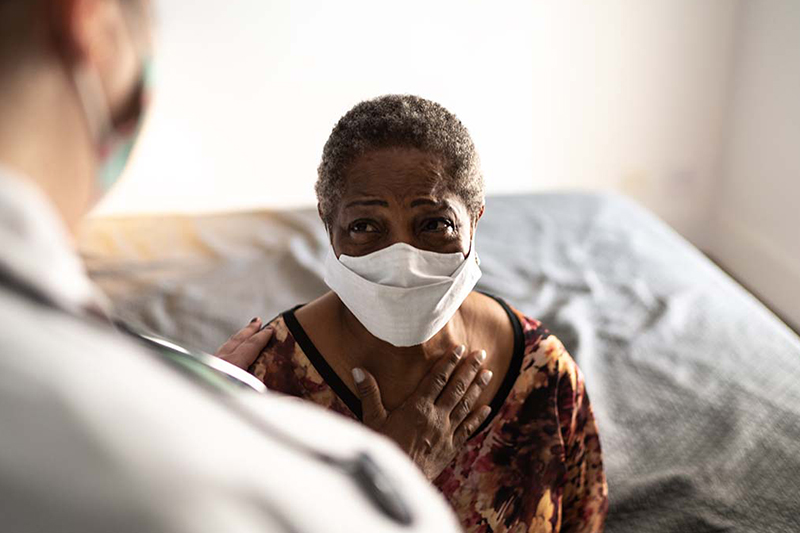
After a year weathering the coronavirus, we now learn that thousands of patients, including pregnant women and children, still find a full recovery from COVID-19 elusive. Long past the time they should feel “better,” these patients continue to experience several symptoms from SARS-CoV-2 infection. These effects have been colloquially referred to as “Long COVID,” and many individuals who experience them have begun identifying themselves as “long-haulers.”
As NIH Director Dr. Francis Collins wrote in his recent blog, “Trying to Make Sense of Long COVID Syndrome,” the symptoms can be mild to incapacitating and can persist for months following the acute phase of the disease. We do not yet know the magnitude of Long COVID’s effect on public health, but given the number of individuals of all ages who have been or could be infected with the virus, that impact could be profound. Understanding and developing strategies to prevent and treat what scientists call “Post-acute sequelae of SARS-CoV-2 infection”, or PASC, has now become a public health priority.
A Research Response
NIH recently announced research opportunities to better understand PASC. The hallmark program will be a COVID-19 Recovery Meta-Cohort that will leverage ongoing COVID-19 studies, as well as studies established before the pandemic. The overarching goal is to understand the incidence, risk factors, and mechanisms of PASC. This work will be informed by large data studies that glean information from electronic health records and health systems. Further, a biobank will facilitate the sharing of tissue samples for an analysis of the breadth of organ injury due to SARS-CoV-2 infection and Long COVID.
At NICHD, we remain committed to serving key populations: pregnant and lactating women, children, adolescents, and people with disabilities. We encourage the inclusion of these populations in research to understand the long-term impact of COVID-19. It is our hope that this initiative will help to develop prevention or treatment strategies for those who have recovered from COVID-19 but still live with its consequences. The knowledge we gain from this research may also inform our understanding of other diseases as well.
While over 13% of the total cases of COVID-19 are in children, most children exposed or infected with SARS-CoV-2, develop a mild form of the disease. Some children develop Multisystem Inflammatory Syndrome in Children (MIS-C), which is a severe complication characterized by significant inflammation of organs and tissues, including the heart, lungs, kidneys, brain, skin, and eyes. We recently launched a study to identify children at risk for developing MIS-C. The NICHD-led project, called Predicting Viral-Associated Inflammatory Disease Severity in Children with Laboratory Diagnostics and Artificial Intelligence (PreVAIL kIds), is part of NIH’s Rapid Acceleration of Diagnostics (RADx) initiative to speed innovation in the development, commercialization, and implementation of technologies for COVID-19 testing.
Throughout this pandemic, we have witnessed the resilience of our patient and scientific communities, who have come together in extraordinary ways. NICHD deeply appreciates the contributions of patients, particularly children, pregnant women, and those with disabilities, who have offered their experiences and insights to help researchers and the medical community better understand the many deleterious effects of COVID-19 and how we may be able to prevent and treat them moving forward.
 BACK TO TOP
BACK TO TOP